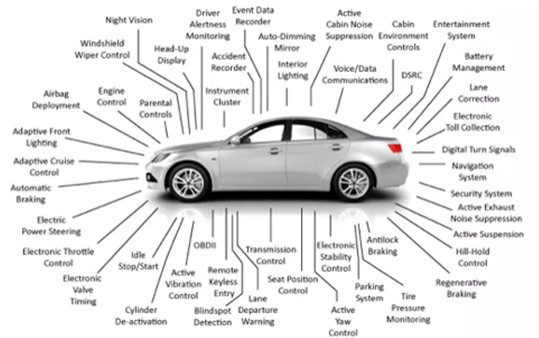Electric Brakes and the Evolution of Automotive Safety
The Role of Braking Systems in Vehicle Safety
The Importance of Effective Braking
Effective braking systems are fundamental to automotive safety, influencing vehicle handling, stopping distances, and driver confidence. Over the decades, advancements in braking technology have significantly enhanced safety standards, with electric brakes emerging as a pivotal innovation in modern vehicles. Electric Brakes and the Evolution of Automotive Safety
Evolution from Mechanical to Electric
Historically, vehicles relied on mechanical braking systems that operated through hydraulics, transmitting force from the driver’s pedal to the brake pads. While effective, these systems had limitations in response time and precision. The shift towards electric brakes represents a paradigm shift, leveraging electrical signals for quicker, more precise braking actions.
Advantages of Electric Brakes in Safety
Precision and Response Time
Electric brakes offer superior precision and response time compared to traditional hydraulic systems. By eliminating the delay caused by fluid compression and mechanical linkages, electric brakes enable almost instantaneous braking reactions. This capability is crucial in emergency situations where split-second decisions can prevent accidents.

Enhanced Control and Stability
The ability to modulate braking force precisely enhances vehicle control and stability. Electric brakes facilitate smoother transitions between acceleration and deceleration, contributing to overall driving comfort and safety. This level of control is particularly beneficial in adverse weather conditions or challenging terrains.
Technological Advancements Driving Safety
Integration with Advanced Driver Assistance Systems (ADAS)
Electric brakes play a pivotal role in the integration of ADAS, supporting features like autonomous emergency braking (AEB), lane-keeping assistance, and adaptive cruise control. These systems rely on precise braking interventions to enhance collision avoidance and mitigate the severity of accidents. Electric brakes enable seamless interaction with sensors and control units, optimizing safety performance in modern vehicles.
Regenerative Braking Systems
Many electric and hybrid vehicles incorporate regenerative braking systems, which convert kinetic energy into electrical energy during braking. This not only improves energy efficiency but also enhances braking consistency and reduces wear on friction components. Regenerative braking systems contribute to extended battery life in electric vehicles, further promoting sustainability alongside safety benefits.
Environmental and Economic Considerations
Sustainability and Reduced Environmental Impact
Electric brakes align with global efforts to reduce vehicle emissions and environmental impact. By eliminating hydraulic fluids and reducing mechanical wear, electric brakes minimize maintenance requirements and associated environmental risks. Regenerative braking systems actively contribute to energy conservation, making electric vehicles (EVs) more eco-friendly alternatives in the automotive landscape.
Long-Term Cost Savings
From an economic standpoint, electric brakes offer long-term cost savings for vehicle owners. Reduced maintenance intervals and enhanced reliability translate into lower operational costs over the vehicle’s lifespan. As technology advances and economies of scale drive down production costs, electric brakes are becoming increasingly accessible, offering a compelling value proposition for consumers and manufacturers alike.
Challenges and Future Outlook
Technological Integration and Standardization
The widespread adoption of electric brakes faces challenges related to technological integration and standardization across different vehicle platforms. Harmonizing electronic control systems and ensuring interoperability with existing vehicle architectures remain critical objectives for industry stakeholders. Continued research and development efforts are essential to refine electric brake technology and address compatibility concerns.
Consumer Awareness and Acceptance
Educating consumers about the benefits of electric brakes, such as improved safety, efficiency, and environmental sustainability, is crucial for driving adoption rates. Enhancing consumer confidence through transparency about performance and reliability will be instrumental in overcoming initial skepticism and accelerating market acceptance of electric brake systems.
Conclusion
Embracing a Safer Automotive Future with Electric Brakes
In conclusion, electric brakes represent a significant advancement in automotive safety, offering superior precision, control, and sustainability benefits. As technology continues to evolve, electric brakes will play an increasingly integral role in shaping the safety standards of future vehicles. By prioritizing innovation, collaboration, and consumer education, stakeholders can collectively drive the adoption of electric brakes, ensuring a safer and more sustainable automotive industry.


